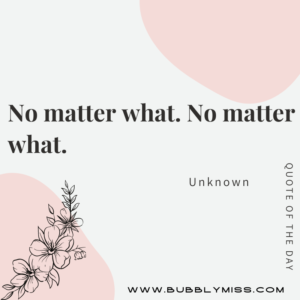10 Mindset Hacks That will Transform Your Life

Mindset – what exactly is it, and how does it affect our lives? A lot of the time it comes down to how we feel about ourselves, but I never thought to ask why that is so critical. How do we feel about ourselves? And if we don’t feel good about ourselves, do we change our mindset? And how can we do that? This article will first take a look at the definition of mindset and then offer eight powerful mindset hacks to help you transform your life.
Definition Of Mindset
The New Oxford Dictionary defines mindset as, “the set of assumptions, methods of reasoning, and points of view that comprise a person’s outlook or attitude toward a situation.” This means that something as seemingly simple as a mindset can play a pretty substantial role in the way we experience everything. The ideas and beliefs that we have of and about ourself are all part of our mindset. In essence, our mindset is the map by which we navigate our own mind.
Mindset refers to the complex sets of assumptions that we make about ourselves, others, and the world around us. These assumptions are formed by our previous experiences, as well as the beliefs and perceptions that we have developed over time.
Why Is Mindset So Important?
When we understand the meaning of mindset in the context of our daily lives, it is clear that it plays a significant role. If we assume that everything is going to go wrong, then everything will likely go wrong. On the other hand, if we assume every outcome to be positive, then everything ends up being positive for us, in some way or another. It may seem silly to consider this, but it’s something you don’t want to overlook, if you want to achieve optimal success in life.
The way we think and process information has a major impact on our life and relationships. Having a positive mindset is therefore a crucial component of any successful plan. And it is our primary tool for navigating our experience in life. Let’s look at a few key examples of how mindset plays a crucial role in shaping our lives.
Beliefs About Self
The way we feel about ourselves determines our confidence level. If we are confident in ourselves, we know we will be able to tackle any challenge that comes our way, which allows us to relax and move forward with full force. However, if we are doubting ourselves, we most likely feel inadequate and are not able to give our all, which in turn holds us back in life.
Beliefs About Others
The way we perceive other people can also have a significant effect on our lives. If we believe that they are trustworthy and reliable individuals who are there for us when we need them, then that will most likely be the case. However, if we believe they are out to deceive and cheat us, then that is what will probably happen.
How Will your Beliefs Impact your Life?
If you want to change any outcome in life, it’s first of all your mindset that needs to change. There is not much you can do to bring about change, if you have negative beliefs about yourself or others. You need to change these beliefs and build up a positive mindset in order to be successful – and bring about change.
The following eight “mindset hacks” come from the world of Personal Development and can help you to find more peace in your life.
#1: Adopt the Right Mindset
The best mindset to adopt is one of gratitude. Be grateful for whatever you have, and whatever you have at a given moment in life. This allows you to appreciate the little things and makes you a happier person overall. Also, consider adopting the mindset of abundance, which means believing that there are endless opportunities out there just waiting for you. Imagine yourself at 32 and trying to start a new business! Of course this would be possible – if you have set your mind on it!
If scarcity is your mindset, you will probably try to take a job with an established company instead of striking out on your own. However, if abundance is your mindset, you’ll feel confident that you will be able to find the right situation to fit your skills and knowledge. You’ll be able to embrace the opportunities that are available for you, without thinking that it might be impossible to achieve those things.
#2: Focus on the Positive
If you want to change your mindset, the first step is to eliminate any negative thoughts by focusing on the positive aspects of a situation. Instead of saying “I cannot do this”, say “I may not be able to do this yet, but I can learn and do this, if I put my mind to it.” If you notice yourself thinking negatively about a situation, immediately try to look at some positive side of it.
This technique will help you stop thinking about bad things that happen … in such a way that they will not have anymore control over you. Instead, it will allow you to get your mind off of those negative thoughts and focus on the positive things going on in your life. You will be able to build a more positive mindset around whatever situation you are involved in.
#3: Develop a Growth Mindset
In today’s world, there are countless opportunities for learning new skills that will help you to “level up” as a person. Whether it be online courses, books or seminars, there are many ways for almost anyone to level up their lives. For the most part, however, people fail to do this. A large proportion of the population fails to try anything new – instead of pushing themselves to learn new things, they just give up without even trying and are content to stay where they are at.
This kind of mindset is unhealthy and unproductive, because it doesn’t allow you to grow as an individual. However, if you develop a growth mindset, you will be able to learn new skills with ease and always feel as though you can push yourself a little bit further than you could before.
#4: Don’t Worry About the “What Ifs”
Chances are that you have wondered – and worried – about the “what ifs” in your life at some point in time. While doing that can be useful in some circumstances, the most important thing to remember is that the ‘what ifs’ are not happening in the present moment. Because, what happens when you keep focusing only on the “what ifs”? You will be unhappy and anxious, because your dreams or goals have not yet come true, and this will cause stress and worries – over events that may not be realizable at this very moment, or may never even happen.
You can avoid the “what ifs” by recognizing and focusing on your momentary actions; learn to think of the “what ifs” only as they happen. If you find yourself thinking of something that could go wrong, remind yourself that it’s not happening at that very moment, and that it also could go right and all work out fine.
If you are about to board a plane, for example, and have had some turbulences while in the air before, and gotten scared, remind yourself that that one incident is over and unlikely to happen again. Instead of worrying about what could happen on that flight, focus on what good is happening at that present moment, such as the nice person sitting next to you or that friendly and helpful flight assistant. Worrying about the “what ifs” will only make you anxious, but not change anything – we do not know the future, we can only live to experience it. Worrying about the future will only rob you of today’s peace and happiness.
#5: Take Time to Recharge
Another thing that we often forget in our fast-paced modern lifestyle is taking time to recharge our batteries. You can easily lose track of time, as everything seems so rushed and busy in our society. But time is of the essence … not only when it’s important to get something done fast, but also in regards to our taking a break! Remember to take time out of your day to recharge.
The way you do this is up to you, but you should definitely consider doing it, and doing it regularly. Whether you go for a walk outside and enjoy some fresh air or just sit down somewhere and have a cup of coffee on a sunny day … there are many ways to have a short ‘time out’ and relax, and doing this will go a long way in helping your mind recover from all of the day’s stress.
#6 Remove any Limiting Vocabulary
What is ‘limiting vocabulary’?
There is a specific kind of vocabulary which limits you and keeps you stuck in the same mindset. When using some words like ‘being unlucky’ over and over again, it will affect and likely limit your life. For example, what do you call a person who cannot achieve things? One who has no luck, correct? But why do we us this word and put this on ourselves? Why do we call ourselves “unlucky”? We should not, simply because it is not true, and using these words puts us down and leaves us feeling hope- and powerless:
Think about this: if you start using a word to describe yourself, like being or feeling “lucky” or “unlucky”, are you not putting this word – and its meaning – at the forefront of your life … and mind? So, there you go again, feeding yourself this negative word and keep thinking about it every single minute of every day; no matter what you do, that negative word is there clouding your mind.
Now think about what it means to be “unlucky.” When a person says “I am not lucky”, in essence they are telling you (and themselves) that they believe that they’re not good enough! Now, they might indeed not perform as well as others in a particular situation, but the problem is that saying this then makes it easy for them to get their point across – and for us to believe it. Especially a person with low self-esteem may like to use that word, because using such a word gives them an excuse (because usually, whoever is called “unlucky,” sees themselves as a victim of their circumstances) … and more of a reason to continue feeling negative and depressed.
And how about looking at the word “lucky”? People who have low self-esteem also like to use this word to describe themselves. Normally, one would use this word to describe a person who has won a contest, someone who is rich, or someone who is able to live a life of luxury. But think about the meaning of the word “lucky”. When we say this about someone, we believe that they actually did not have to work or do something for their money or success – it just kind of fell in their lap, be it due to an inheritance or some other “lucky'”coincidence. But, for the most part, we are the ones to design our lives, we are the ones responsible for our failures and successes, not something called “luck.”
So, do we really need to tell someone how lucky or unlucky we – or they – they are? No, because this will only shift the responsibility away from us, and keeps us stuck in this ‘victim thinking’, which claims that you have nothing to do with whatever happens to you. And this kind of an attitude will never bring about change.
#7 Acknowledge your Thoughts
One of the best ways to transform your life is to first become aware of your thoughts, because they are the foundation for everything else in your life.
Recent studies have shown that you can alter and change your brain chemistry just by changing the way you think. This is why it’s imperative to monitor your thoughts closely.
What is meant by this?
Too often, we don’t acknowledge what we are thinking in a certain situation. If you’ve had an issue with someone on Monday, for example, and then a similar situation again on Wednesday, the negative feelings we have about that particular person on Wednesday will be based on our previous experience from Monday. What this means is that we often hold on to negative feelings and emotions for longer than necessary.
This is due to the fact that we’re usually not even aware of what we are thinking, and our brains won’t automatically let go of the “old” emotions. This does not mean that your feelings are wrong or bad. It merely signifies that you should be more aware of your thoughts, so that you can understand why you feel a certain way about someone or something – especially when it is a negative feeling, like feeling hurt or rejected. Only when you become more aware of your thoughts can you understand where your feelings stem from. And once you realize and acknowledge your feelings, you can decide whether that emotion is appropriate for the situation or not – and then might be able to change it.
To watch our thoughts is very important, because oftentimes we are driven by our emotions, instead of following our logic – and because of this, we may end up making the wrong decision. Our emotional memory can make us miserable, especially when we don’t confront negative emotions and let them build up over time. Keeping negative emotions stored inside will make us miserable and unhappy, produce negative thoughts, and might result in potential wrong decision making, on a business as well as personal level.
Watching our thoughts therefore helps us to recognize certain patterns in our thinking, and allows us to take charge of our emotions – and, most importantly, enables us to remove negative emotions from our life.
#8 Your Thoughts Should Follow the CTFAR Model
Have you ever heard of the CTFAR Model?
The CTFAR model is short for your Circumstances, Thoughts, Feelings, Actions, and Results, and was developed by Brooke Castillo, founder of the Life Coach school, who has helped thousands and thousand of people from all over the world to experience the power of positive thinking. It is a self-coaching model, which implies that it is simple enough to be adopted in your daily life without the assistance of a coach.
The essence of the CTFAR model says that your thoughts produce your feelings, your feelings fuel your actions, and your actions create your results (circumstances). I kind of sounds like a “reverse pyramid,” with your circumstances at the bottom. If you want to see different results in your life or change your circumstances, you first need to change the way you think.
Let’s say you’ve been looking for a new job, but haven’t had any success. You’re feeling frustrated and mad. This is going to cause you to act a certain way – like maybe getting angry with the people around you – which is not going to help your situation. Finally, you decide to reframe your thoughts. You take a few minutes before going to bed each night and write down your thoughts of the day in regards to what’s happening with your job search. You think of some alternate ways to view this situation and focus on the positive (“there are still a lot more interesting companies for me to check out) instead of the negative (“why has no-one offered me a job yet?) aspects.
Instead of getting angry at the situation, you reframe your thinking and tell yourself, “I am grateful for my current situation, because it will make me stronger in the long run. I am grateful, even now, because I know that this challenging time will help me grow as a person, as I am learning a lot and will later be able to put that knowledge to good use.”
To reframe your thinking is going to create feelings of peace, happiness, and confidence – which is going to cause you to act and behave differently – because of your new thinking. So instead of getting frustrated with the job search or wallowing in despair, put your focus on positive things, like your family and friends, your hobbies, or other parts of your life you are grateful for.
The Role of Affirmation in Changing Your life
Affirmations are one of the best ways to reprogram your brain. Positive affirmations help you to feel like you can do all things. Positive affirmations are made up of positive statements, which, when repeated regularly, will eventually replace negative thoughts with healthy, positive ones.
This doesn’t happen overnight, but it’s most effective in training your brain to think in a more empowering way. Listening to, reading and speaking out affirmations, you’ll find that you’re able to achieve and succeed at whatever goal you set out to achieve. It might seem like magic at first, but with practice and effort, it becomes a natural part of your life and thought processes.
We all have a list of things we’ve told ourselves over and over again, right? But usually these are negative beliefs about ourselves, and they stop us from being the person we want to be. That’s why it’s so important to start with what you WANT and work backward from there, affirming yourself until you have been able to reach your goal.
There is power in words – you can tear others down or build them up, just with the words you choose. The same is true for yourself – whatever you choose to speak over yourself will very likely come true. Whatever you speak and listen to, you eventually believe.
#9 Change your State of Mind by Aligning Yourself with your Future Self
The Future You
Aligning yourself with your future self is a simple but powerful concept.
Your future self is the person you aspire to become, the person who’s already achieved your goals, and the person you will become when you put into practice all that you know now. This is why it’s important to align yourself with your future self.
If you don’t believe in your future self, you won’t believe in your potential to achieve anything. And then you probably won’t, because you have not realized the importance of all that you’re doing now! If your only focus is on the present, not just your own, but also the perception of others comes into play. In not believing in yourself or your future, you will let everybody else dictate how they want you to think and what they want you to do. And you won’t do anything about it … until you imagine and listen to your future self.
Fact is, your future self is the person who should guide you in everything you do, including the way you think and the decisions you make. She will be the one to help you see things from a different perspective and advise you regarding what’s best for you. And she will be the one to tell you, ” no matter what”, a mantra worth repeating and believing, because this attitude will transform your life.
#10 Create an Alter Ego
Creating an alter ego can be very helpful, because it helps you break through your self-imposed obstacles and enables you to progress in life. The alter ego is a person who acts differently than you do. It can be as simple as putting on a costume or putting yourself in a scenario where you play the part of someone else, a role that is not your own.
Why create an alter ego? For better communication! Today’s mass media scare tactics dictate our thinking and influence us to the point where we completely loose the ability to think for ourselves. But if you want to become successful and live your dream life, you first need to become a better communicator – especially with yourself – in order to be able to get in touch with your inner emotions and longings. Creating an alter ego can help you to start thinking for yourself and asking questions; and, as you take time to reflect and find out what your goals and aspirations are, you will be on your way to success.
New – or even old – ideas can only be accepted and realized if we are not afraid to question them. So, spending some time with your alter ego may be very effective in helping you on your quest to a more positive mindset.
Final Thoughts
We hope that these mindset hacks provide you with a new perspective on life and help you find more peace and confidence. Remember, you have all the power to change who you are, how others perceive you, and over which opportunities open up for you. Your future completely depends on the decisions you make – and the mindset you have – today.






